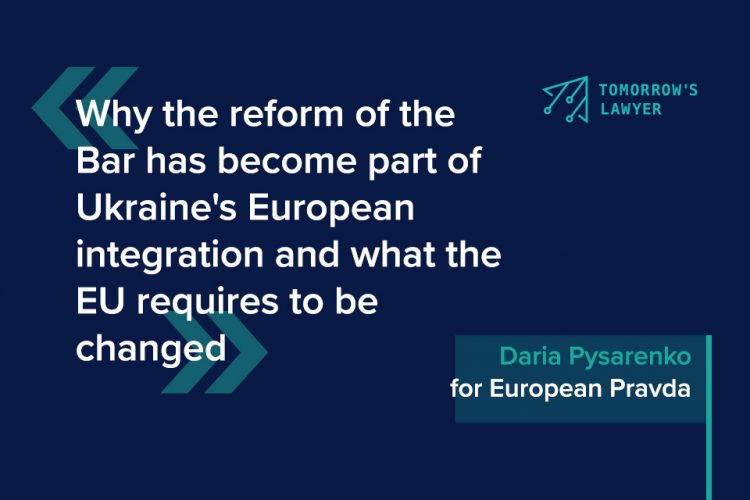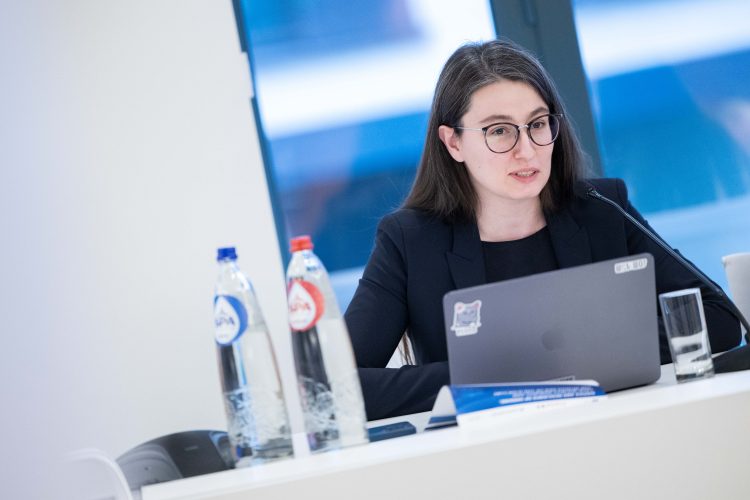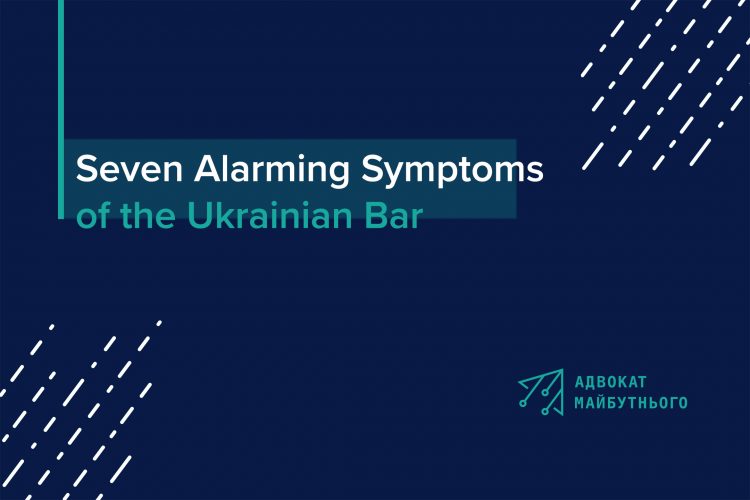
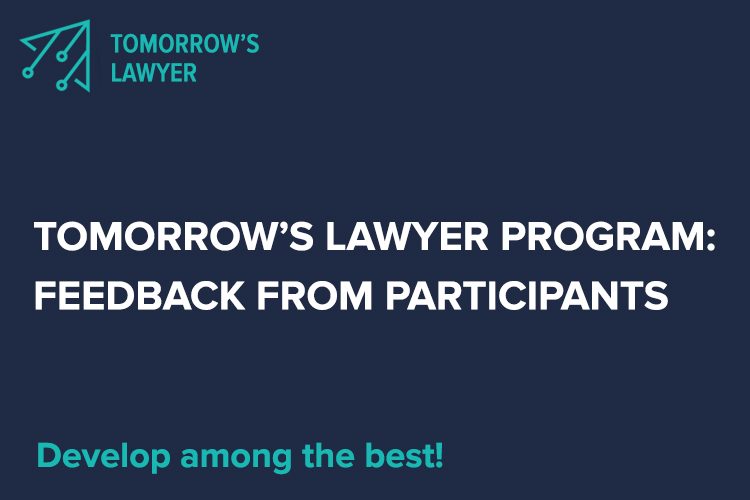
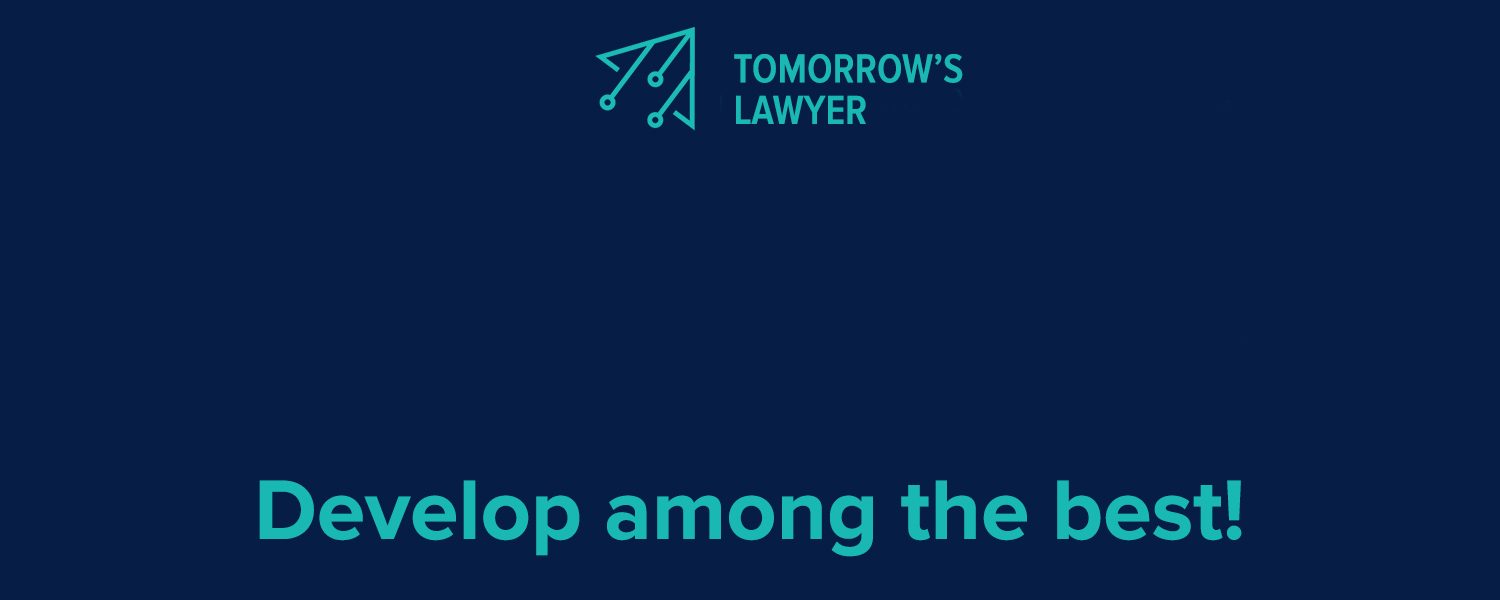
Tomorrow’s Lawyer Program: Feedback From Participants
Participants of the seventh group of the “Tomorrow’s Lawyer” Program completed the first module and eagerly shared their impressions and feedback of the Program in the article published in Yurydychna Gazeta.
Volodymyr Pitsykevych, lawyer, Lviv
Tamara Malovan, lawyer, Kryvyi Rih
Anastasia Shepelenko, lawyer, Kropivnitsky
Maryna Kulabina, lawyer, Khmelnytsky
Dmitry Gladky, lawyer, Zaporizhzhya
Tetyana Yushchenko, lawyer, Chernihiv
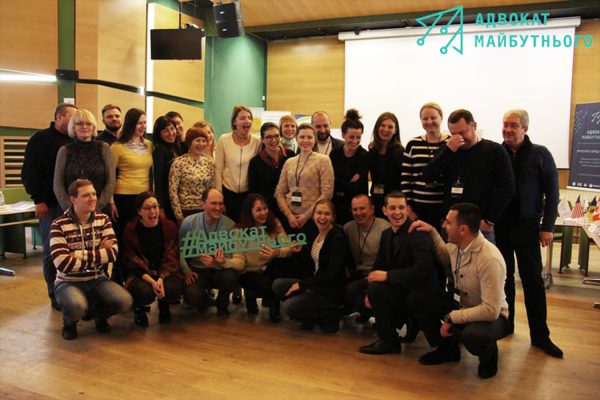
“Tomorrow’s Lawyer”, a training program for lawyers, gains more and more popularity in the legal society. It is positioned as a unique program of professional development, exchange of experience and best practices for lawyers in order to strengthen their leadership capacity in implementing reforms, development of the legal community and the establishment of the rule of law in Ukraine.
For as long as two years of existence, the “Tomorrow’s Lawyer” Program has brought together colleagues and like-minded people who strengthen their professional skills, share their experiences and support each other.
To become a member you should fill out an online application, honestly answer the questions quoted in the questionnaire and wait for the decision of the selection committee. It should be noted that some answers to questions are limited in space – up to 500 characters; therefore, you should carefully ponder your answer before filling out the questionnaire.
State information about yourself in a succinct, clear, meaningful way, choosing the most important points that would allow the jury to understand the personality of the candidate, his/her experience, achievements, capacity and life position. Once admitted, you get new knowledge, new acquaintances, new impressions.
Presently, the second hundred of “Tomorrow’s Lawyer” Program started their training. As members of the G7 group (the letter “G” is the first letter of the English word “Group”, and the digit 7 is the serial number of the group), we would like to share the impressions of the program and the feedback from the first module called “Attorney-Client Relations”.
The first thing that struck is the composition of the group through the prism of the age criterion. In some cases, the age difference between lawyers was several decades: representatives of different generations have expressed a desire to advance together and grow over themselves. It’s exciting. Subsequently it turned out that the group included people from all over the world, with a great deal of work and specialization. However, this fact did not prevent the positive communication and transformation of the group into a friendly team, as the connecting factor was very strong indeed: vital values and the desire for professional development.
The first training module lasted three days. The learning process was organized in a training mode, which included presentations by trainers (lecturers), active involvement of the group members in the discussion and the most important for each lawyer – a practical set of work. It should be noted that it was practical lessons that allowed to better understand and demonstrate the level of mastery of the new knowledge. However, almost everyone failed to immediately apply the information received in due course, but the identified shortcomings helped to systematize the material, think it over and assimilate. The acquired skills have opened up to a new level of communication and achieve the best results of working with the client.
It is worth pointing out that a practical lesson, in which each of the lawyers played non-typical role, namely, the role of the client, became an interesting, useful and cognitive experience. Such transformation helped to better understand the position of the “client” and rethink the “attorney-client” communication process, distinguishing gaps and misunderstandings.
At the same time, the biggest gap in communicating with the client was the effect of a “washing machine”, common basically to every lawyer. What it is? This is a situation in which the lawyer begins to “spin on the drum” with the client, experience and emotionally percept his/her case from the beginning to the end, taking over all the emotions of the client, which in turn gives the undesirable result both the lawyer himself, so and for the case in general. To get rid of the feeling of “washing machine” or not to experience it with a new client in practice is quite difficult. It seems simple, but mere understanding of it is not enough. This requires life experience, practice and proper setup.
Also important is the structuring of a conversation with the client, especially on such elements as interviewing and consulting. Interestingly, the quality and effectiveness of the provision of legal aid is reduced in the event of non-compliance with the sequence of their conduct. This, in turn, can cause misunderstanding and failing to clear the true needs of the client. It is the lawyer who must guide the client’s interview. No need to worry about wasteful time. It is worth giving the client the opportunity to speak three to eight minutes in relation to what he/she is worried about. This will help construct conversations in a constructive way and reveal important information, since the client usually does not distinguish important facts from their personal feelings. Effective work is built on mutual trust, so it is necessary to work on its achievement.
Within the program of the first training module, the concept of “emotional intelligence” as a factor of human communication ability, the ability to realize their emotions and understand the feelings of other people has been widely discovered. The precious asset of the Program is working in groups. It furnishes participants with practical examples of the importance of developing emotional intelligence to improve their work with the client, enhancing emotional management skills and managing empathy.
Particular attention was paid to the work of lawyers with vulnerable groups of clients. During group work, program participants highlighted the most important issues that complicate communication with these categories of clients and developed general recommendations for improving the work with vulnerable groups of clients.
At the same time, when working with a client, you must always keep in mind the rules of ethics of the lawyer and adhere to them strictly. This additionally focuses attention during the training module and provides tasks for ethics cases. Participants of the group were divided into separate subgroups for the purpose of solving cases and identifying the most problematic of them. Subsequently, each of the subgroups voiced its case and position for public discussion in the group. These were the hottest discussions, since the only correct answer in the solution of practical cases did not exist. However, this lesson has shown that it is necessary to be more cautious in dealing with clients in order to prevent violations of the Code of Ethics. The rules of law ethics are not only a standard lawyer’s behavior, but also balanced advice in communication with both the client and his colleagues.
Ultimately, the three day training broke out very quickly. The classes were intense, cognitive, and sometimes witty and very funny. Each of the lawyers, forgetting about their regalia and previous achievements, acted as a true and honest person. The team felt a relaxed and friendly atmosphere that contributed to the learning and formation of positive relationships.
It is impossible not to mention the flawless organization of training, because everything was thought out to the smallest detail. It was felt that in this project the organizers invested a lot of time, effort and knowledge. And perhaps, and soul. The professionalism of business coach Iryna Glushchenko, experts of the “Tomorrow’s Lawyer” Program Sergiy Goncharenko and Yulia Lisova, without exaggeration, deserve respect and a special gratitude.
We, the G7 group of the second hundred of the “Tomorrow’s Lawyer” Program, are proud and honored to be part of a unique team, a powerful network of lawyers that brings together professionals, people with professional values and settings, and advocates who are not afraid of changes ready for debate, defending their views, positions, beliefs.
Dear participants of the first and second hundreds, the “Tomorrow’s Lawyer” Program encourages you to with the Program community your success stories and professional life events. Please send your emails at: info@tomorrowslawyer.org.
The opinions expressed in this article are the author’s own and do not reflect the view of the “Tomorrow’s Lawyer” Program, the Ukrainian Bar Association, the Bar Association of Legal Aid Providers, the Quality and Accessible Legal Aid in Ukraine Project, the United States Embassy in Ukraine. the Canadian Bureau for International Education, or the Government of Canada.
